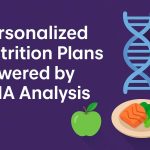When it comes to weight loss, one of the biggest debates in nutrition is low-carb vs. low-fat diets. Fitness enthusiasts, dieticians, and influencers often argue about which eating plan delivers the best results.
Both diets have been studied for decades, and both have loyal followers who swear by their success. But which diet truly works best for sustainable weight loss?
In this article, we’ll explore the science, pros, cons, and practical tips to help you decide whether a low-carb diet or a low-fat diet is right for your weight loss journey.
Understanding the Basics
🔑 What Is a Low-Carb Diet?
A low-carb diet focuses on reducing your daily carbohydrate intake – usually between 20 to 100 grams of net carbs per day, depending on the plan.
Popular examples include:
- Keto diet: Ultra-low-carb, high-fat, moderate-protein.
- Atkins diet: Structured plan with phases that slowly reintroduce carbs.
- Paleo diet: Eliminates processed carbs, focusing on whole foods.
The idea is simple: fewer carbs means lower blood sugar levels, forcing your body to burn stored fat for energy – a process called ketosis.
🔑 What Is a Low-Fat Diet?
A low-fat diet restricts daily fat intake, typically allowing only 20–30% of calories from fat. This plan prioritizes lean proteins, fruits, vegetables, and whole grains.
Popular examples include:
- Ornish diet: Very low in fat (10% of daily calories).
- DASH diet: Designed for heart health but also supports weight loss.
- Traditional calorie-restricted diets: Simply lower overall fat intake.
The main goal is to reduce calorie density, since fat contains more than double the calories per gram compared to carbs or protein.
Low-Carb vs. Low-Fat: What the Science Says
📊 Weight Loss Results
Multiple studies have compared low-carb and low-fat diets head-to-head. Here’s what researchers found:
- In the first 6 months, low-carb diets often lead to faster weight loss because of reduced water retention and appetite suppression.
- Over 12 months or longer, weight loss differences between the two diets become smaller or nearly equal.
This means both diets can work – the key is sticking with one consistently.
🧠 Appetite & Satiety
Low-carb diets may have a slight advantage here. Protein and fat keep you fuller for longer, reducing cravings and helping you naturally eat fewer calories.
Low-fat diets, on the other hand, may leave some people feeling hungrier, especially if they rely too heavily on refined carbs or processed fat-free snacks.
❤️ Heart Health & Cholesterol
Low-fat diets have long been recommended for heart health because they reduce saturated fat intake, which can lower LDL (“bad”) cholesterol.
Low-carb diets can also improve heart health by lowering triglycerides and raising HDL (“good”) cholesterol – but in some cases, they may slightly raise LDL levels.
🩸 Blood Sugar & Insulin
Low-carb diets are especially helpful for people with type 2 diabetes, prediabetes, or insulin resistance. Reducing carbs helps stabilize blood sugar and improve insulin sensitivity.
Low-fat diets can still work for blood sugar control, but they rely heavily on portion control and limiting refined carbs.
Pros and Cons of Each Diet
✅ Low-Carb Diet: Pros
- Faster initial weight loss
- Reduces sugar cravings
- Improves blood sugar control
- Keeps you feeling full longer
❌ Low-Carb Diet: Cons
- Can cause keto flu or fatigue initially
- May limit fruits, whole grains, and some healthy carbs
- Can be hard to follow long term for some people
✅ Low-Fat Diet: Pros
- Easier to follow in social settings
- Encourages more fruits, vegetables, and whole grains
- Lower in saturated fat – great for heart health
❌ Low-Fat Diet: Cons
- Can leave you hungry if protein isn’t balanced
- May lead to overconsumption of refined carbs
- Weight loss can be slower in the beginning
Choosing the Right Diet for You
SEO Keywords: best diet for weight loss, choosing low-carb or low-fat
There’s no one-size-fits-all answer. The best diet is the one you can stick with in the long run.
Ask yourself these questions:
- Do you love bread, pasta, and rice? If yes, a low-fat diet might be easier to follow.
- Do you feel better eating protein and healthy fats like avocado and salmon? A low-carb diet could work well.
- Do you have health conditions like diabetes or PCOS? Low-carb diets may be more beneficial.
Practical Tips to Succeed
🔄 Combine the Best of Both Worlds
You don’t have to go to extremes. Many people succeed by following a moderate-carb, moderate-fat diet that focuses on whole foods, lean proteins, and healthy fats.
🥦 Focus on Whole Foods
Whether you choose low-carb or low-fat, avoid processed junk foods. Build your diet around:
- Vegetables
- Lean proteins
- Whole grains (if allowed)
- Healthy fats (olive oil, nuts, seeds)
📆 Be Consistent
Consistency matters more than perfection. Aim for a realistic eating pattern you can maintain for months – not just weeks.
Final Thoughts
When it comes to low-carb vs. low-fat diets, both can be effective for weight loss. Low-carb diets may help you lose weight faster in the beginning and improve blood sugar control, while low-fat diets may be easier to sustain for some people and are excellent for heart health.
The key takeaway? Choose the diet that fits your lifestyle, preferences, and health goals – and stick to it. Sustainable weight loss isn’t about quick fixes but about long-term habits that work for you.






Leave a Reply